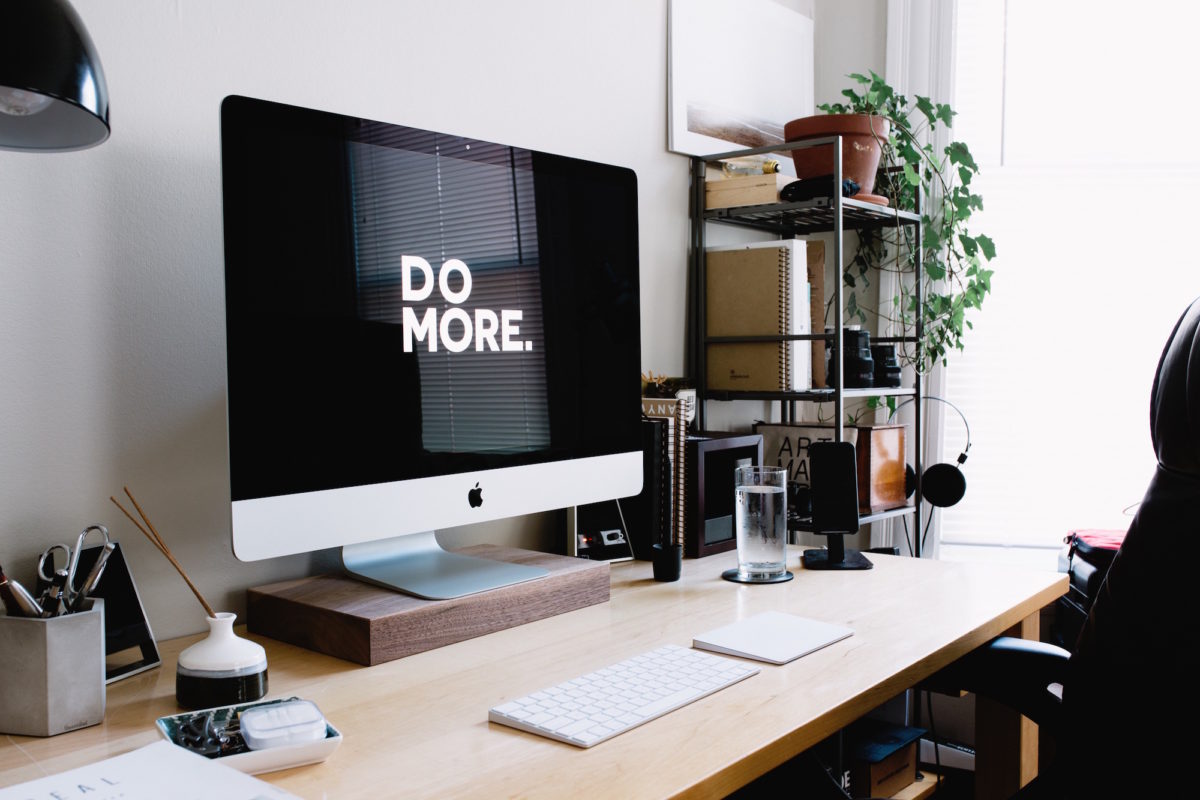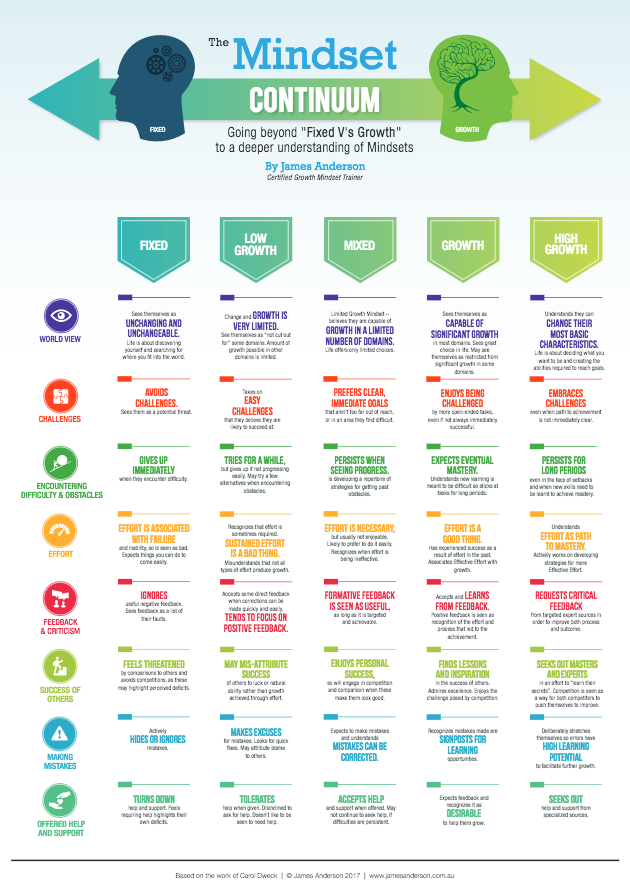The essence of personal development, and what makes us more or less receptive to the idea that we have never fully explored our potential, is our approach to life. It sounds a bit banal, but it is the reality. The way we see life, through the half-full or half-empty glass, the way we approach relationships, the way we face challenges and the way we grow shape the journey we are taking, and the successes we will achieve.
Fixed mindset vs. growth mindset
Take two different people in the same situation, right after being denied the same promotion and given constructive feedback as to why they didn’t get it.
- Person A is hurt and confused because he was sure the was going to get it. He is angry and dismisses the feedback. He leaves the room furious, and takes the rest of the day off, and even the day after, because he can’t handle being at work. When he comes back to work, he will not improve anything, as he does not like the feedback he received.
- Person B is hurt and disappointed he didn’t get the role, but he appreciates the feedback he was given because it will help him get the promotion next time. He asks questions and got to work on an action plan immediately to be ready for the next opportunity.
What do you think is going to happen to Person A and Person B? The former is going to stagnate, while the latter will grow.
What is the difference between these two people? Their approach. Their mindset. Person A has a fixed mindset. Person B has a growth mindset.
Fixed mindset
People with a fixed mindset are content with what they were born with. They put efforts only when they have to, and it is very often done with negativity, because it is harder than what they are used to. They don’t have a lot left to learn, that is why they take feedback as criticism and reject being challenged on what they think is the reality. They are afraid of failure as it will make them feel very bad and will make them look vulnerable to others. They tend to see the success of others as a threat to theirs.
Growth mindset
On the other hand, people with a growth mindset embrace their weaknesses and vulnerabilities, and see them as growth opportunities rather than failures. They acknowledge that they don’t know what they don’t know, so they try new things to discover more. They tend to manage change with positivity, as they see the big picture and want to test things before having a definitive opinion. They are resilient, and seek learning in defeats. Their sense of self-awareness is usually high. They ask for and listen to feedback. They are inspired by the success of others and enjoy the process of getting there.
How to develop a growth mindset
1 | Accept that change is a great thing
In the first 20 years of your life, you have changed a lot. There aren’t just physical differences between a toddler, a child, a teenager and a young adult. There are a lot more aptitudes, practice, learnings, habits, that have been taught to you and that you have also learned on your own. There is no reason why once at the adult age you don’t change either. Think about the new people you meet, the jobs you have, the travels you do. These experiences add to your journey and make you see things with a new perspective. Measure the impact these changes have had on you, and you will see that you are enjoying change a lot more than you thought.
2 | Try something new
Once you have accepted the inherent beauty of change, you will feel more comfortable trying something new. It can be small, it can be big – the most important is that you do something new, and you see how you react to the uncertainty. What can you learn about yourself?
3 | Enjoy the journey
Find what you want to do, and enjoy the journey to get there. You will need to learn a lot if you want to go far. It’s not supposed to be easy, it’s supposed to be meaningful.
4 | Build self-awareness and accept your weaknesses
Here are some helpful articles already published on The Institute of You that will support you in creating self-awareness and building resilience:
- Be better at receiving feedback
- Redefine what “comfort zone” means to you
- Coach yourself
- Find out about your multiple intelligences and your learning style.
The Mindset Continuum
The visual below will give you more details on the different levels of mindsets and will show you what a higher mindset looks like.


 Source:
Source: